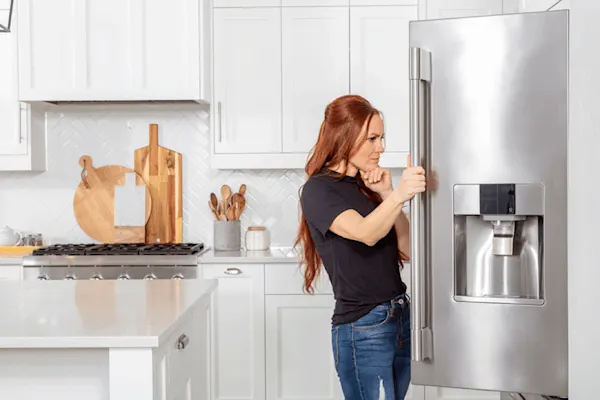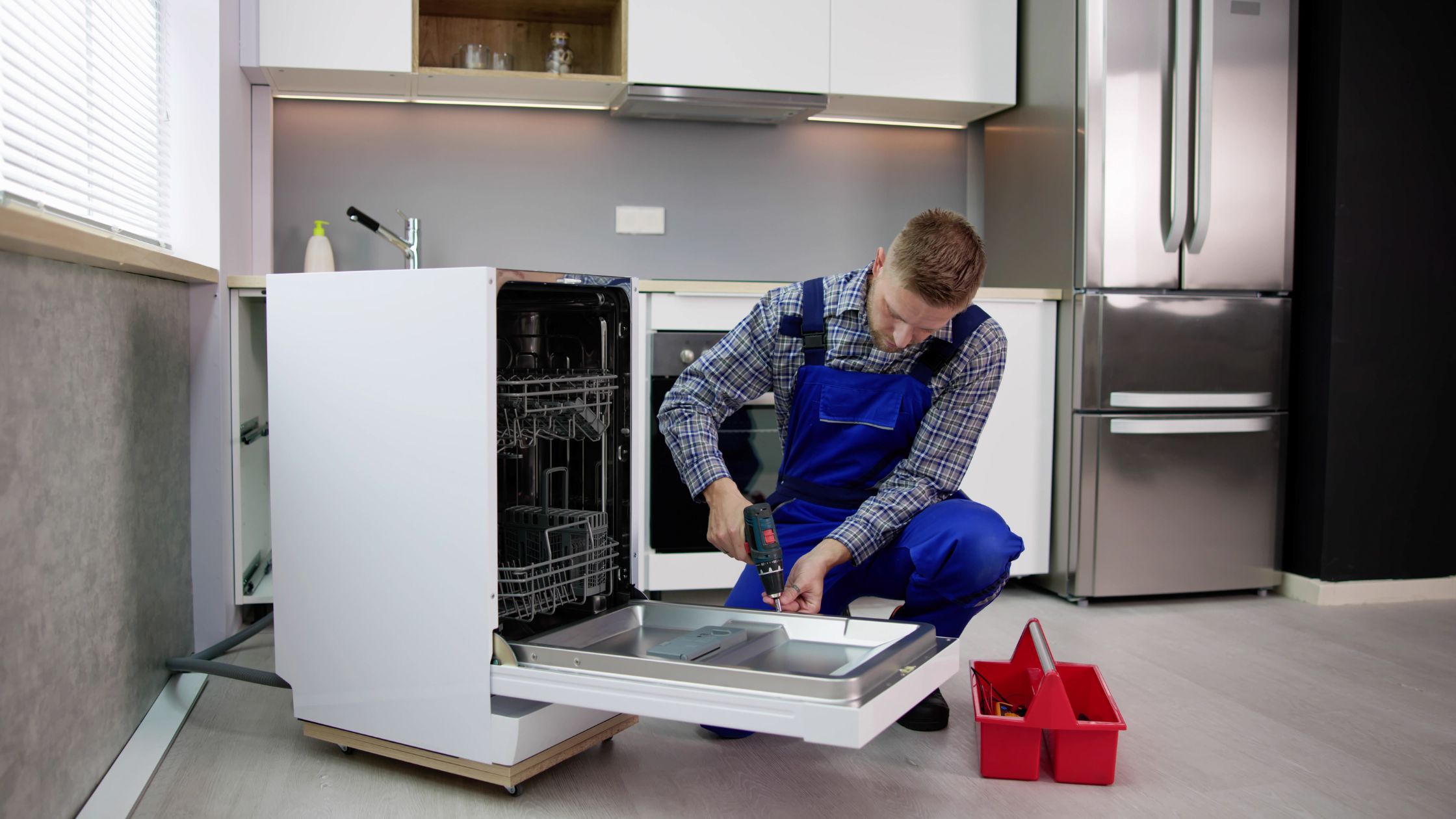The Ultimate Guide to Recognizing Home Appliance Fixing at Home
When your refrigerator stops cooling or your stove refuses to warm, it can really feel frustrating. Recognizing device fixing in the house can conserve you time and cash. You'll find out to identify symptoms, make use of essential devices, and follow a methodical troubleshooting procedure. But prior to you start, there are crucial safety precautions you need to think about. What are the most typical problems, and how can you repair them? Let's discover the essentials.
Typical Device Troubles and Their Signs and symptoms
When your home appliances begin breaking down, it's important to recognize the indicators beforehand. Disregarding them can lead to larger concerns and expensive repair services. As an example, if your refrigerator isn't cooling down appropriately, you may observe warm spots or condensation creating. This might indicate a failing compressor or an obstructed vent.Your dish washer may reveal issues with unclean recipes or unusual sounds during cycles. If you hear grinding or clanking, it's time to investigate.A cleaning equipment that won't rotate or drain can leave you with soaked washing, suggesting a clogged up drainpipe or a malfunctioning pump.Lastly, if your oven's temperature level seems off or it takes for life to preheat, you could be taking care of a malfunctioning thermostat. By staying alert to these symptoms, you can address concerns prior to they rise right into significant repairs.
Important Devices for Device Repair Work
When you're dealing with home appliance fixings in the house, having the right devices is essential. Fundamental hand tools like screwdrivers and pliers will aid you disassemble and repair various home appliances, while electric screening devices assure you're functioning safely with circuitry. Let's look at what you need to begin on your repair trip.
Standard Hand Tools
Having the right tools is necessary for reliable device repair in the house. Begin with a reliable screwdriver set, including both flathead and Phillips kinds, as screws are common in home appliance assembly. Pliers are additionally important; they aid with gripping, twisting, and cutting cords or little parts. A set of needle-nose pliers can get to tight places quickly. You'll require a great flexible wrench for tightening up or loosening nuts and bolts. An utility blade comes in handy for reducing with packaging or insulation. Lastly, do not forget a tough workbench or surface to safely arrange your tools and components. With these fundamental hand devices, you'll be well-prepared to deal with most home appliance fixings that come your means.
Electrical Screening Tools
Alongside basic hand tools, electrical screening tools play a crucial function in device repair work. These tools assist you identify electric problems and warranty devices function safely. A multimeter is crucial; it gauges voltage, current, and resistance, allowing you to determine problems quickly. A non-contact voltage tester is an additional must-have, allowing you identify real-time wires without making direct contact, enhancing your safety. Secure meters are wonderful for determining current flow in cables without separating them, conserving you time and initiative. Furthermore, circuit testers can rapidly examine if outlets are operating appropriately. By utilizing these tools, you'll streamline your troubleshooting process and enhance your repair abilities, making home appliance upkeep a lot simpler.
Step-by-Step Guide to Diagnosing Home Appliance Issues
When your home appliance acts up, it can be discouraging, yet diagnosing the concern doesn't have to be frustrating. You'll find out to identify usual troubles and apply reliable fixing strategies. Allow's go through the actions to obtain your home appliance back in functioning order.
Typical Device Problems

Fixing Strategies Discussed

Fixing Significant Kitchen Devices: A Closer Look
Have you ever before questioned how to deal with usual issues with your kitchen area appliances? Fixing major kitchen appliances like refrigerators, ovens, and dish washers Continued can be easier than you assume. Begin by identifying the problem-- whether it's a refrigerator not cooling down or a stove that won't heat. Usually, a basic reset or checking the source of power can fix the issue.For refrigerators, tidy the condenser coils and check the door seals. If your oven's not heating, evaluate the burner and thermostat. Dishwashing machines could just require a you can find out more tidy filter or a reset to obtain them back at work. Always disconnect the device prior to diving right into fixings to ensure your safety.Don' t fail to remember to get in touch with the individual manual for specific repairing ideas associated with your version. With a bit of persistence and the right devices, you can with confidence tackle home appliance repairs and save cash at the same time!

Fixing Washing Appliances: Tips and Techniques
When your washing devices start acting up, it can really feel overwhelming, however troubleshooting them doesn't have to be a headache. Start by checking the power supply. Verify the appliance is plugged in and the outlet is functioning. Next off, check the door or lid switch; a defective button can avoid the machine from operating.For washing machines, if it's not spinning, look for unbalanced tons. Redistributing the clothing may address the problem. If your clothes dryer isn't heating, clean the dust filter and examine the vent for blockages.Listen for uncommon sounds; they can indicate a problem. If your home appliance is leaking, examine the tubes for splits or loosened connections. Paper any type of error codes presented on electronic displays, as they can guide you in recognizing the issue. Lastly, speak with the user handbook for certain troubleshooting ideas connected to your version.
Safety Preventative Measures to Take During Fixes
Before you begin any kind of appliance fixings, it's important to prioritize safety to protect against mishaps or injuries. Initially, disconnect the appliance or turn off the circuit breaker to assure no power reaches it while you work. Use insulated tools to reduce the risk of electric shock. Put on safety and security goggles and gloves to protect yourself from sharp edges or debris (Lg Dryer repair near me Dependable Refrigeration & Appliance Repair Service).Make particular your workspace is clean and well-lit, so you can see what you're doing. Keep youngsters and animals away from the location to prevent disturbances and possible threats. If you're dealing with gas home appliances, be added mindful; look for leakages before proceeding.Take your time, and do not hurry through repair work. If you feel unclear regarding any type of step, it's much better to pause and research than to guess. Following these precautions will help produce a much safer atmosphere for your DIY home appliance repair service job
When to Call an Expert for Help
Exactly how do you understand if it's time to call a professional for appliance repairs? If you've attempted fundamental troubleshooting without success, it's a clear indication. If your appliance still won't start or reveals uncommon noises after resetting it, do not hesitate to look for specialist help.When you see leakages, smoke, or shedding scents, focus on safety and security and call a professional promptly. These issues can cause more significant damages or position threats to your home.Also, if your home appliance is under service warranty, speaking to a professional is often the finest course. They can assure that fixings won't void your guarantee, saving you money in the lengthy run.Finally, if you're unsure or uncomfortable with intricate fixings, it's smart to leave it to the experts. Bear in mind, dealing with complicated issues without the ideal competence can lead to expensive blunders. Trust an expert when unsure!
Often Asked Inquiries
Exactly How Can I Protect Against Appliance Troubles in the Future?
To avoid appliance troubles in the future, you ought to do normal upkeep, check for deterioration, tidy filters, and stay clear of overloading. Staying proactive will help extend their life-span and maintain them running smoothly.
What Are the Most Typical DIY Home Appliance Repair Work Mistakes?
You might overlook safety preventative measures, miss repairing actions, or make use of incorrect tools when trying do it yourself device fixings. Hurrying the procedure or neglecting manufacturer guidelines can result in more substantial concerns and pricey mistakes. Stay person and informed!
Exactly how Do I Know if a Part Needs Replacement?
You can tell if a component requires replacement by examining for uncommon noises, leakages, or inconsistent performance. If the appliance struggles to run appropriately or shows visible damage, it's most likely time for a replacement.
Can I Make Use Of Generic Components for Device Repairs?
Yes, you can utilize generic parts for home appliance repair services, however identify they work - Lg Dryer repair near me Dependable Refrigeration & Appliance Repair Service. Common parts could conserve you money, but they can impact performance or longevity, so evaluate your alternatives carefully before choosing
What Warranties Cover Home Appliance Services?
Many home appliance service warranties cover fixings for manufacturing issues, yet they usually exclude damage from abuse. Inspect your service warranty terms meticulously, as some could require utilizing certified professionals and original components for protection to stay legitimate.